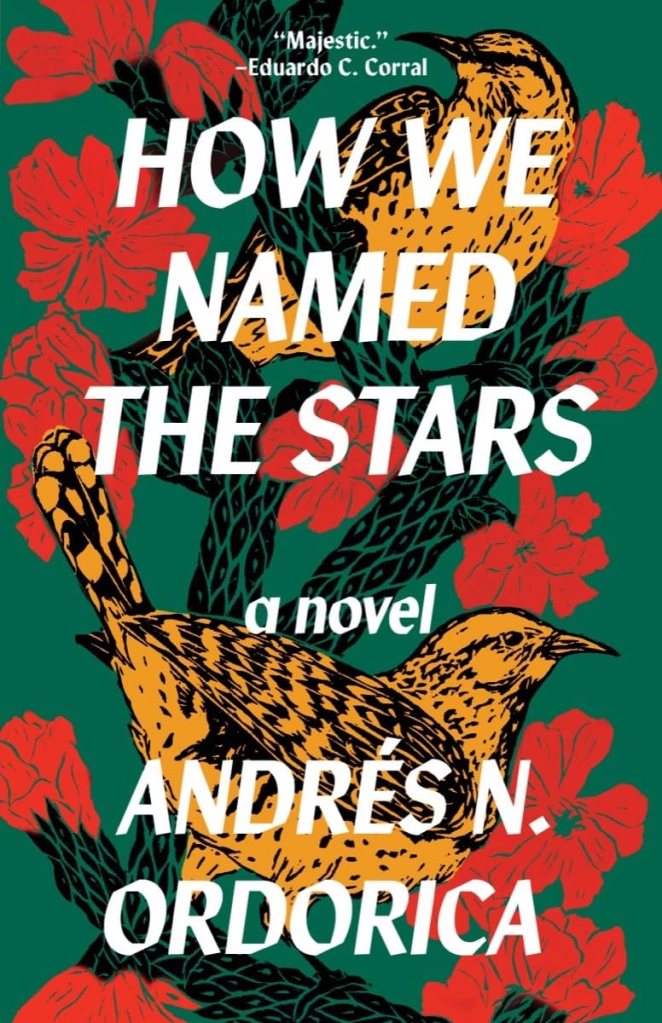Rating: ★★★

Disclaimer: I received a free copy of this book for review from Netgalley. Thank you to Tin House Books.
I believe the prologue of How We Named the Stars is absolutely beautiful. I cried a little when I read it the first time, and then read it again when I finished the book. The entire book itself is full of beautiful, emotional writing. When I finished, I discovered Ordorica is a poet, so that makes sense.
With that said, I want to say the book lacks substance because so much relies on language alone. Most of the book is just paragraphs of Daniel’s, the narrator, thoughts. Not exactly much happens until the third part. Until then, so much is just what’s in his head. However, it’s difficult to say the book lacks substance since the point seems to be emotional, not plot-focused. Still, it fell flat for me.
Speaking of the plot, essentially it’s supposed to be adjacent to a love story between Daniel and Sam. At least, that’s how I feel. Perhaps others would say it’s a full-on love story. But as I said, so much is in Daniel’s head. I find it hard to discuss this without spoilers, but the links between Daniel and others felt weak. If more time was spent with those other characters, where we as readers see them being themselves instead of Daniel telling us about them, perhaps the links would feel stronger. Besides Daniel and Sam, and really just Daniel, there is nothing to be said of these characters. I know nothing about them or their development. With Sam, I had trouble understanding why Sam felt the way he did. It was like, it just happened because it needed to be that way for the book. There was no development of character or feelings.
In the third part of the book, things change in many ways and there are so many scenes with other people. People talking and things happening. This was like a breath of fresh air. To be honest, while reading the first and second parts, I was getting frustrated. It was Daniel’s constant thoughts. If there was a scene with dialogue, each line was followed by a paragraph of Daniel’s thoughts. I didn’t know if the whole book would be this way, but I didn’t want to give up. The prose itself was lovely.
I guess all of this boils down to the old adage of “show don’t tell.” This book almost solely tells us what is going on. It was disappointing. My frustration would rate it two stars, but my feelings while reading Ordorica’s use of language would give it four stars. Normally, a three star rating from me usually means it’s a middling book. But I can’t say that’s the case here. There are two strong reactions to this book, and three stars is just the average.